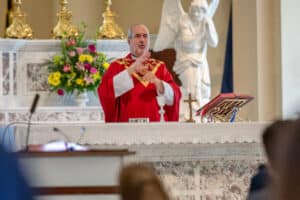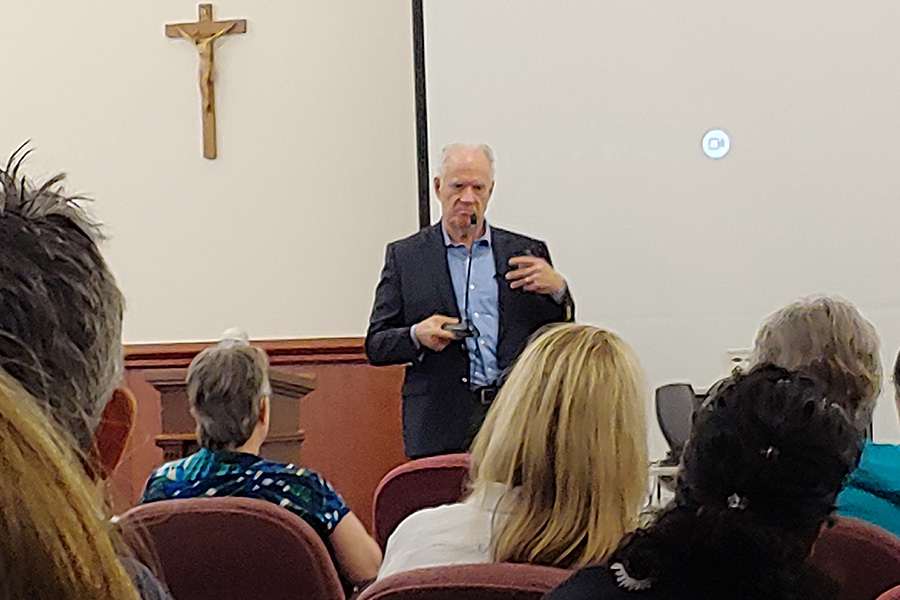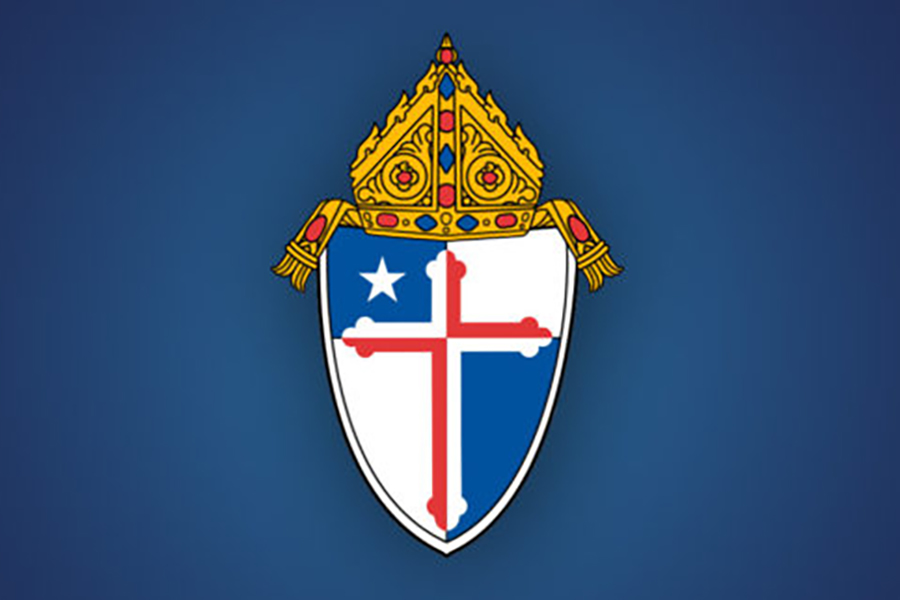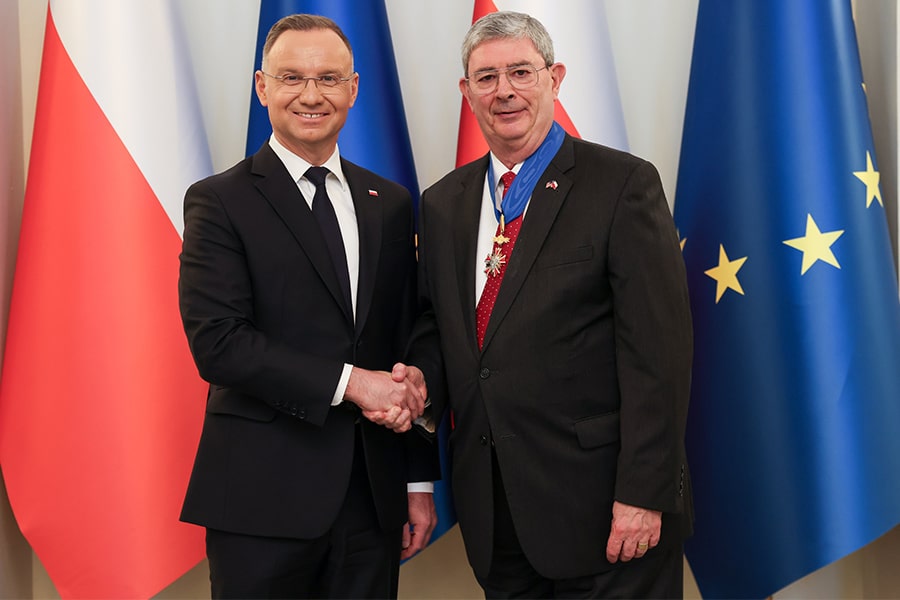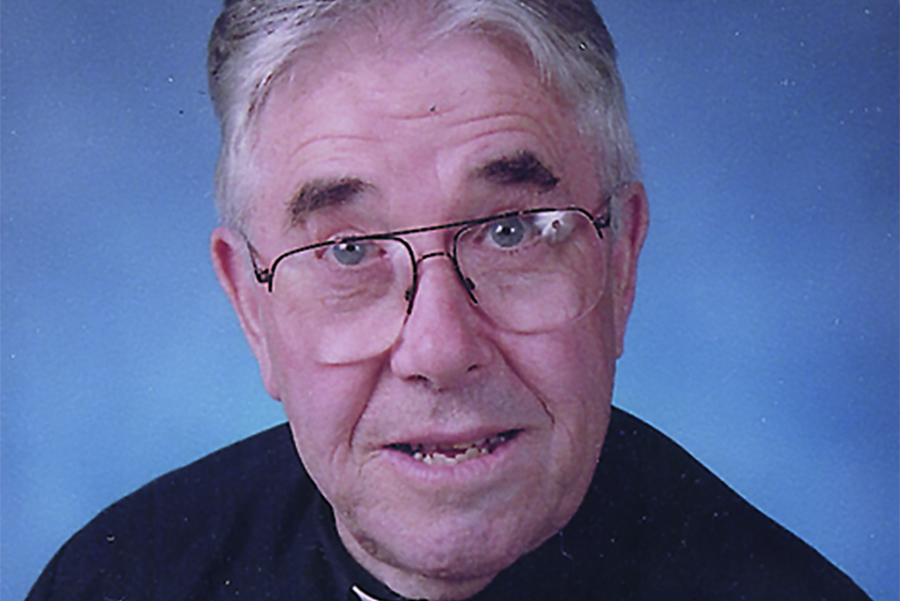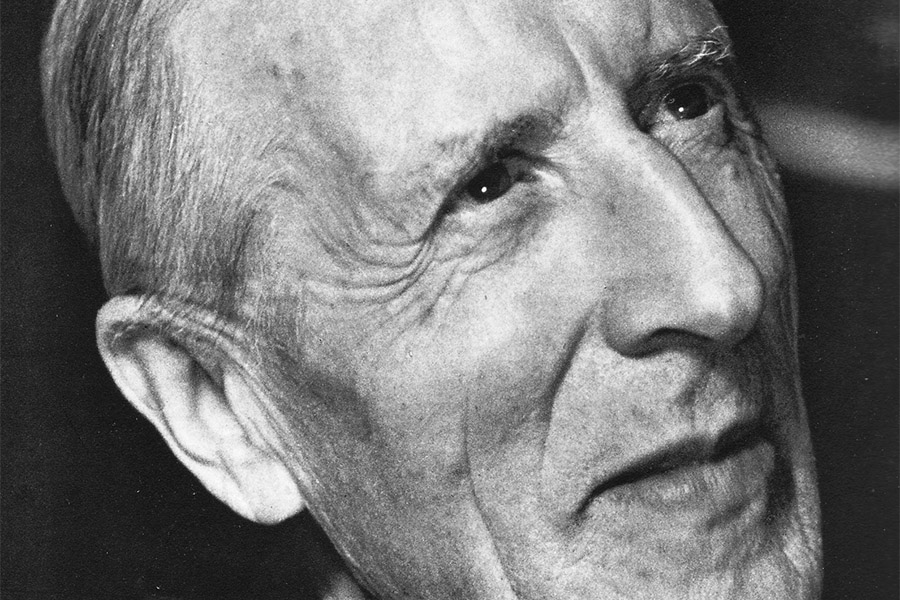Some Catholics might think there are no deaf parishioners in their parish, and therefore no need for ministry to them.
But Father Michael Depcik, an Oblate of St. Francis de Sales who is deaf, said that since deafness is invisible, it’s easy to overlook fellow Catholics who are deaf. “When you see people with other disabilities, you can see that. You can build ramps you can do other things to make it accessible,” Father Depcik told the Catholic Review through a sign-language interpreter. “But for a deaf person it’s invisible. It’s really more similar to other people with a different language.”
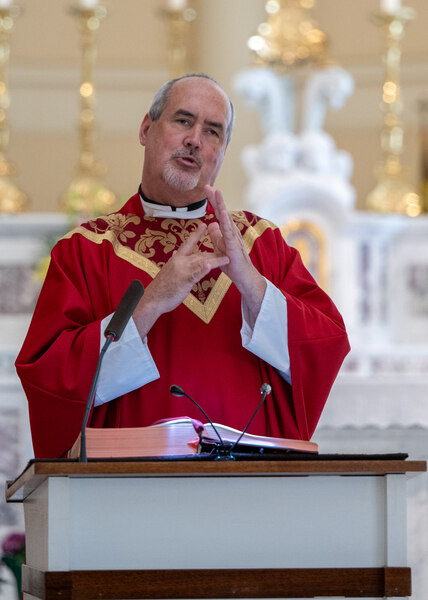
Archbishop William E. Lori appointed Father Depcik as the new chaplain for deaf ministry in the archdiocese, effective Aug. 14. Father Depcik celebrated Mass at the Basilica of the National Shrine of the Assumption of the Blessed Virgin Mary in Baltimore in May, around the time his appointment was finalized. Father Depcik signed most of the prayers of the Mass, and Chris Duck, coordinator of Deaf Ministry for the archdiocese within the Office of Life, Justice and Peace, interpreted vocally for the hearing members of the congregation.
He has spent the last several years based in Detroit, providing ministry to the deaf community there while also traveling around the country to provide sign-language Masses and other ministry, including within the Archdiocese of Baltimore on occasion.
According to Johns Hopkins researchers, there are more than 1.2 million Marylanders who are deaf or hard of hearing.
“I came because Maryland and the Archdiocese of Baltimore has one of the largest deaf communities and I know ministry to the deaf Catholics is needed here and I feel a strong calling to come here,” he said. He became familiar with the area when he was a student at Gallaudet University in Washington, D.C., which primarily serves the deaf and signing community.
Father Depcik said deaf Catholics “need to have a Mass in their own language and culture. If there is an interpreted Mass, they are often passive participants. My goal when I am here is to have it be their Mass where they can be the lectors and the ministers of all the things that happen in a parish.”
He said there are very few culturally deaf priests in the world, that is, priests who were deaf at birth and grew up in a deaf culture versus priests who have lost their hearing – perhaps seven in the U.S. and, at best guess, about 12 in the world. “So, if you are talking to me you are talking to 10 percent of the deaf priests in the world,” he said with a smile. He said there are three deaf priests in Ohio, but he is the only one in Michigan at this time.
There were challenges preparing for ordination. “I think some people questioned how a deaf person could be a priest. Could I be a member of the community? We were able to convince them that I would not be a burden. But it continues even today,” he said. Father Depcik’s parents and one sibling are deaf.
The first deaf priest in the country – Trinitarian Father Thomas Coughlin – was ordained in Baltimore in 1977. He eventually left the Order of the Most Holy Trinity to help found a community of priests and brothers who minister to deaf, disabled and marginalized communities in parishes and hospitals.
Duck, of the Deaf Ministry office, said that there are not many priests in the archdiocese who are comfortable celebrating Mass in American Sign Language.
Similar to Hispanic and Black communities that identify better with priests, deacons or religious who look like them, it is “amazing to have a deaf priest who knows the deaf community. It’s one thing to have a priest who learned sign language. It’s another to have someone who knows the community and its concerns,” he said.
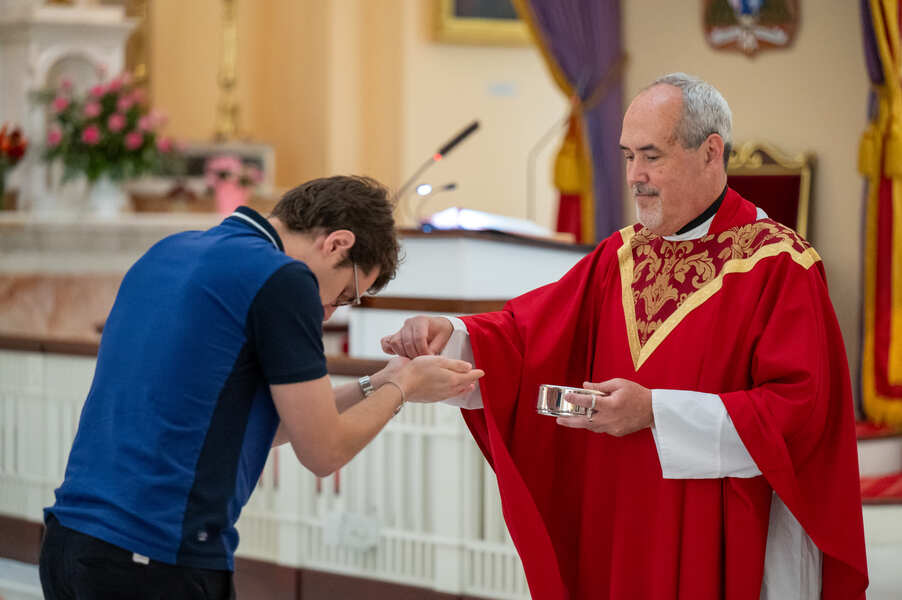
“Rather than having an interpreted Mass including a homily prepared for a hearing community and allowing me to have a translation, this is coming from my experience, rather than letting me have an interpreter,” said Duck, who often is one of the sign-language interpreters for archdiocesan liturgical celebrations.
He said there is no accurate count of deaf Catholics in the archdiocese. Currently, there are 12 ASL-interpreted Masses in the archdiocese, although there were as many as 18 before the pandemic.
Since approval of the “Pastoral Statement of U.S. Catholic Bishops on Persons with Disabilities” in 1978, Father Depcik said the situation has improved for hearing people with other disabilities, “but I don’t really think we have seen much improvement for the deaf community.” He said he sees dioceses around the country cutting costs, and ministry to the deaf is often one of the first things that gets trimmed.
Father Depcik plans to continue his video blog, “Father MD’s Kitchen Table,” which presents brief homilies in sign language for the Sunday readings, as well as livestream Masses when possible.
Father Depcik said he looks forward to providing sacramental ministry to deaf Catholics, for whom the sacrament of reconciliation is especially difficult, because it is hard to find a priest who can converse in ASL, and penitents don’t want an interpreter in the confessional.
“How many priests know sign language well enough is very limited, very few, so many people have not gone to confession for years,” he said. “It breaks my heart that people can die without the sacraments.”
Once he starts his work full-time in the Archdiocese of Baltimore in August, he will celebrate a weekly Mass at the Country Church, a historic building that is part of St. Ignatius in Ijamsville, where the first Mass will be Aug. 20.
Masses will sometimes be celebrated in the Baltimore area, according to Duck. When Father Depcik occasionally travels outside the archdiocese to minister elsewhere to the deaf community, the Office of Deaf Ministry will find a priest who can sign the Mass to cover, or offer an interpreted Mass.
Also see:
RADIO INTERVIEW: Reaching the deaf community in the Archdiocese of Baltimore
Email Chris Gunty at editor@CatholicReview.org
Read More Local News
Copyright © 2023 Catholic Review Media
